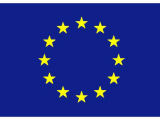Restorative Justice, 2011-2013
Restorative Justice and the Medation in Penal Matters - a stock-taking of legal issuses, implementation strategies and outcomes in the Member States of the European Union

The 24 month project aims to take stock of restorative justice in 37 European countries with a view to comparing experiences, and identifying promising implementation strategies and effective solutions (good practices); investigating to what degree relevant international instruments (most prominently Recommendation R (99) 19 and Council Framework Decision of 15 March 2001) are reflected in national implementations; informing existing instruments with a view to confirming or amending them, and/or informing the drafting of new instruments, principles and guidelines for effective and desirable implementation strategies.
The basis for international comparisons shall be provided in the form of national reports, submitted by experts in the field of restorative justice/mediation in each participating country. Comparability shall be facilitated by determining in advance the scope of restorative justice that we envisage this project to cover (going beyond ‘classic’ mediation to include conferencing, reparation orders, restorative justice as a form of diversion, court sanction, condition for early release, post-release mediation etc.), and by providing a common structure for the reports. Upon the authoring of these national chapters, which shall be published in one larger volume, a second volume shall be published containing comparative chapters highlighting core findings and recommendable practices/strategies that shall be of relevance to legislators, criminal justice practitioners, relevant NGOs, victim support groups, ministry officials, researchers, the European Union and the Council of Europe. The comparative analyses shall be fuelled by debate, discussion and exchanges at the two conferences that are envisaged in this project proposal. The results of the project shall also serve as a foundation for future, more specific research, and shall be disseminated upon completion of the project through publications in (peer reviewed) scientific journals, international conferences (ESC, ASC, ICS) and national and international workshops for the above stated target groups.
Partners of the project:
- Austria, Institute for the Sociology of Law and Criminology
- Finland, National Research Institute of Legal policy
- Latvia, Centre for Public Policy PROVIDUS
- Lithuania, Institute of Law
- Slovakia, Trnava University
- Spain, Ramon Llull University of Barcelona
- United Kingdom, Durham Law School at Durham University
Project coordinators:
- Prof. Dr. Frieder Dünkel
- Joanna Grzywa, LL.M.
- Philip Horsfield, LL.M.
